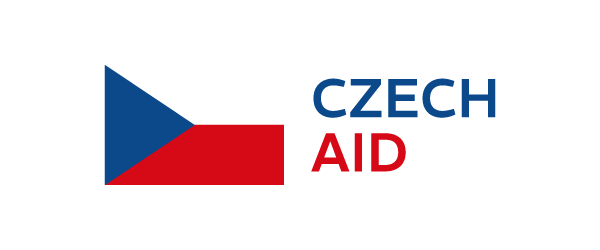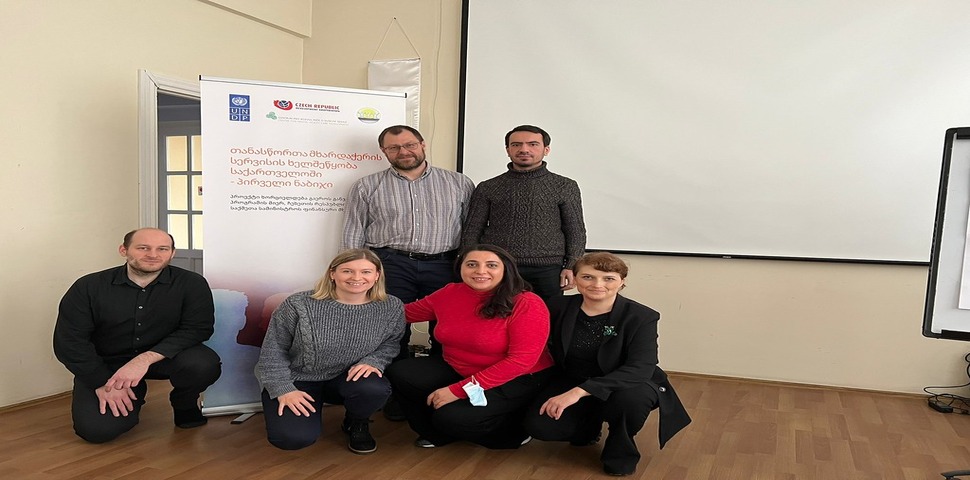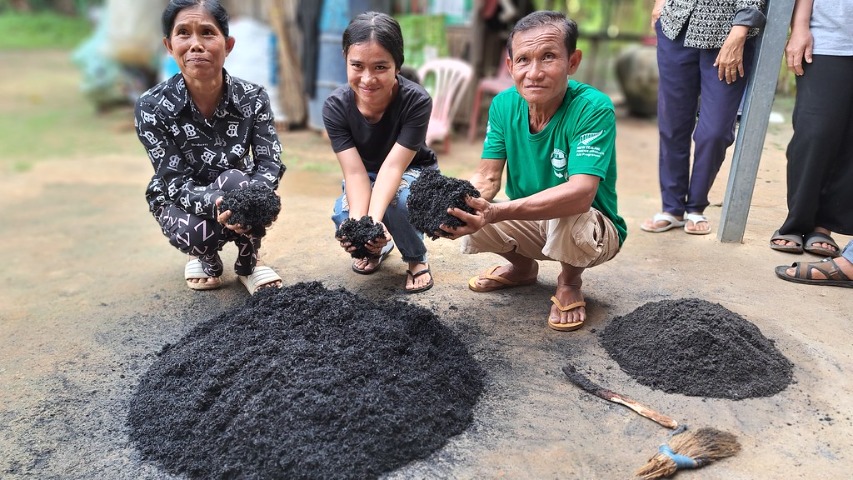Each year, Czech-UNDP Partnership for SDGs supports around 12 projects within the Challenge Fund modality. Each year a call for applications is announced and private companies as well as the non-profit sector send applications with their proposed projects. With their projects they try to solve a specific problem in a given country in an innovative way.
This year, the Challenge Fund received a record number of applications. A total of 69 innovators applied to all six priority countries – Bosnia and Herzegovina, Georgia, Moldova, Ethiopia, Cambodia and Zambia. In the end, the selection committee chose the best projects, which the innovators started to implement in all priority countries in the fall.
One of the countries where the Challenge Fund implemented the most projects is Georgia. The long-term priorities here are sustainable growth with a focus on the countryside and public infrastructure, good governance with a focus on building an inclusive, democratic society, and environmental protection.
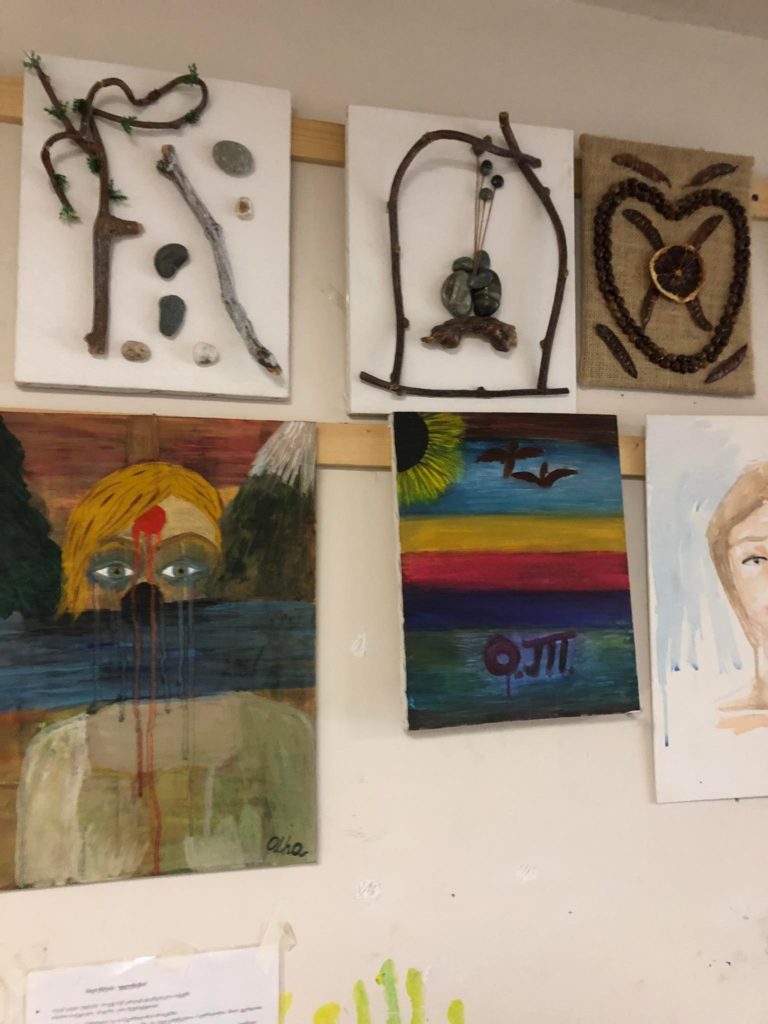
Union “Partnership For Equal Rights” (Per) 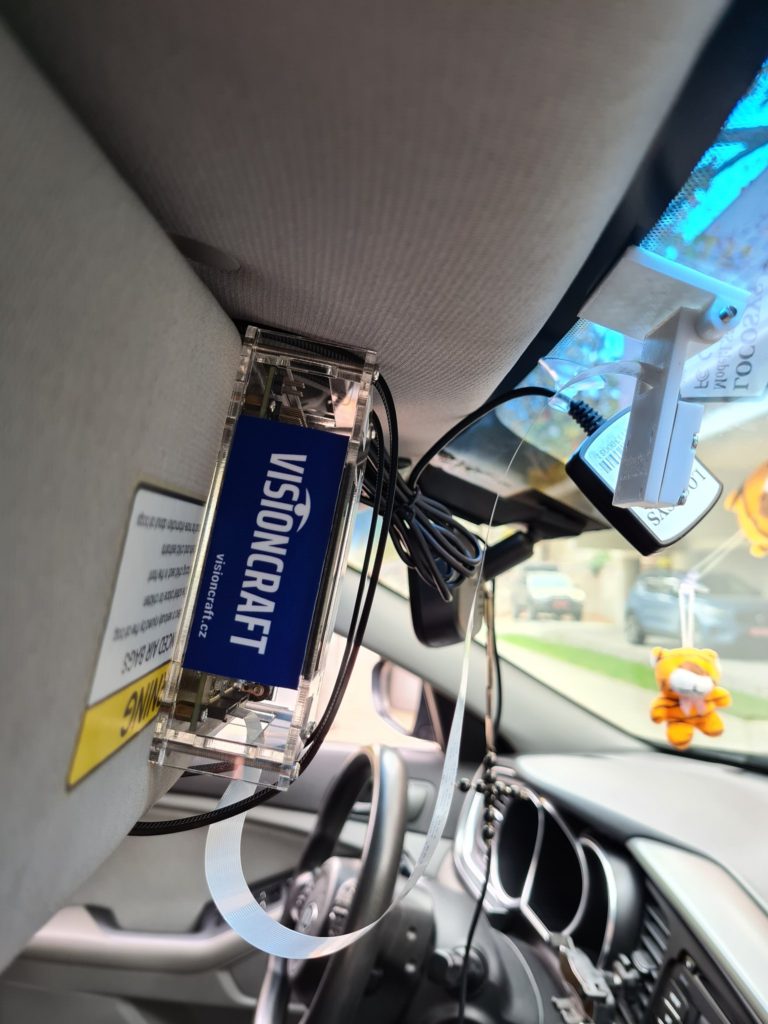
VisionCraft AI installed in a vehicle.
To help the local healthcare system in the field of mental health, this year the project on Mental Health Care will be implemented. Czech Centrum pro duševní zdraví will support the training of so-called peer workers. Peer workers are people with lived experience of a mental disorder and “peer support” is an innovative intervention in which people with similar experiences offer support to others with a mental disorder in social services, psychiatric hospitals and other social and health facilities. In addition to training peer workers, the project also aims to create a peer work standard that frames the functions of peer workers in the country’s mental health care system. The second project in Georgia, on the other hand, will focus on supporting local infrastructure. Czech company Vision Craft will use viRAM artificial intelligence to identify road surface quality, missing or damaged signs and any other issues on the road. The collected data will generate real-time reports, giving local governments accurate information on road conditions and where problems need to be fixed. The project aims to improve overall road safety. The third project selected for Georgia focuses on waste infrastructure maintenance in the city of Batumi.
The second priority country for the Challenge Fund is Bosnia and Herzegovina (BiH). Here, the long-term priorities include sustainable growth with a focus on decarbonization and the circular economy and good governance with a focus on waste management and renewable resources. This year, only one project will take place in Bosnia. It is a project of the company T-Mapy, which will provide a data-driven “smart” waste management system in Sarajevo. The software GIS solution is used to inform the general public about the location of collection yards, the waste collection schedule and the provision of other information of public interest. The GIS system can also serve as a basis for the implementation of smart solutions on a larger scale and for the management of smart cities.
The third country in the European region where three projects will be implemented this year is Moldova. The priorities here are sustainable growth with an emphasis on inclusive economic growth, market and employment support, sustainable green cities, digital transformation and energy self-sufficiency. The first project is the project of the Czech association Semínkovna. It aims to create a network of seed libraries that can be a starting point for solving the issue of access to seeds at the local level. The plan is to launch 3 to 5 seed libraries in several sub-regions. Emphasis will be placed on the most vulnerable groups in rural areas, helping them to improve their quality of life. Another project in Moldova will deal with the revival of tourism in this little-visited European destination. The Czech company Smart Guide will support efforts to make Moldova more attractive to tourists with a modern digital solution, education of partners in the tourism industry and their experience from the global market. The finished Smart Guide platform allows tourist attractions, destinations and travel agencies to publish digital travel guides within days with minimal budget and good quality. The third project will be the transfer of Czech beekeeping know-how to local beekeepers from Apis. The main innovation will be the introduction of the Thermosolar Hive, which can kill Varroa mites only with the power of sunlight and is completely environmentally friendly and more successful than commonly used chemicals. In addition, the use of thermosolar hives increases honey production by an average of 20 to 50%.
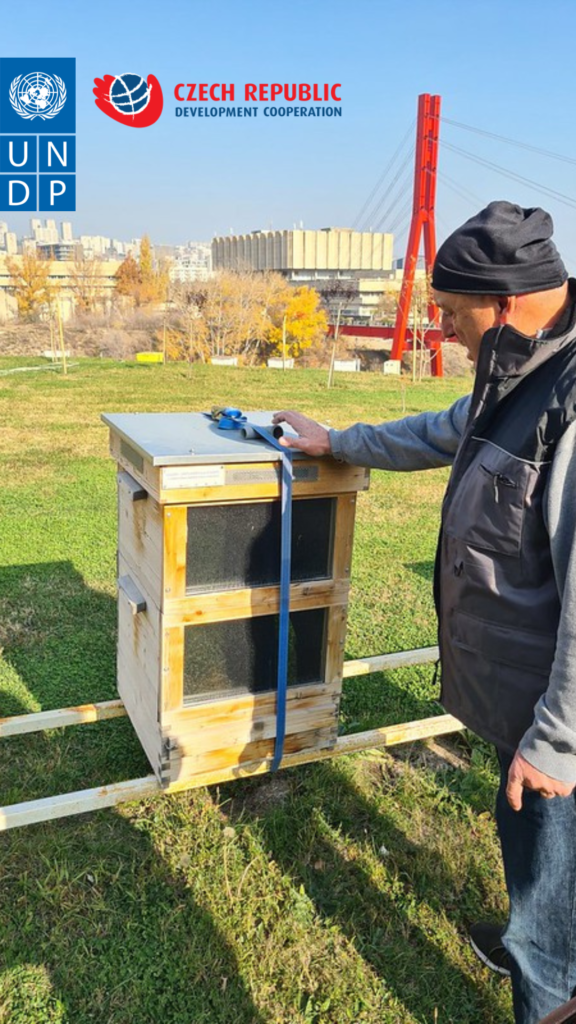
Thermosolar Hive 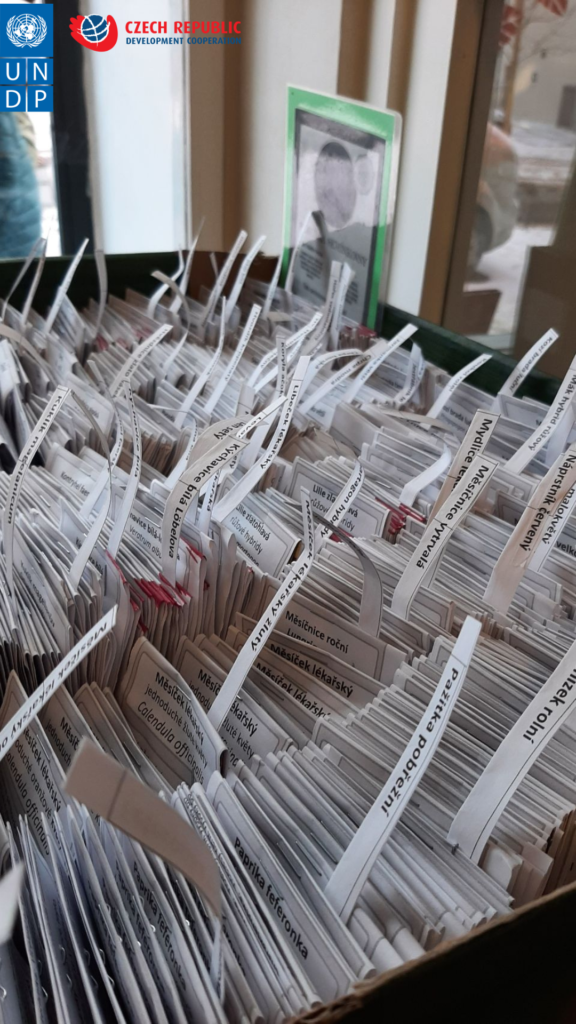
Seed library 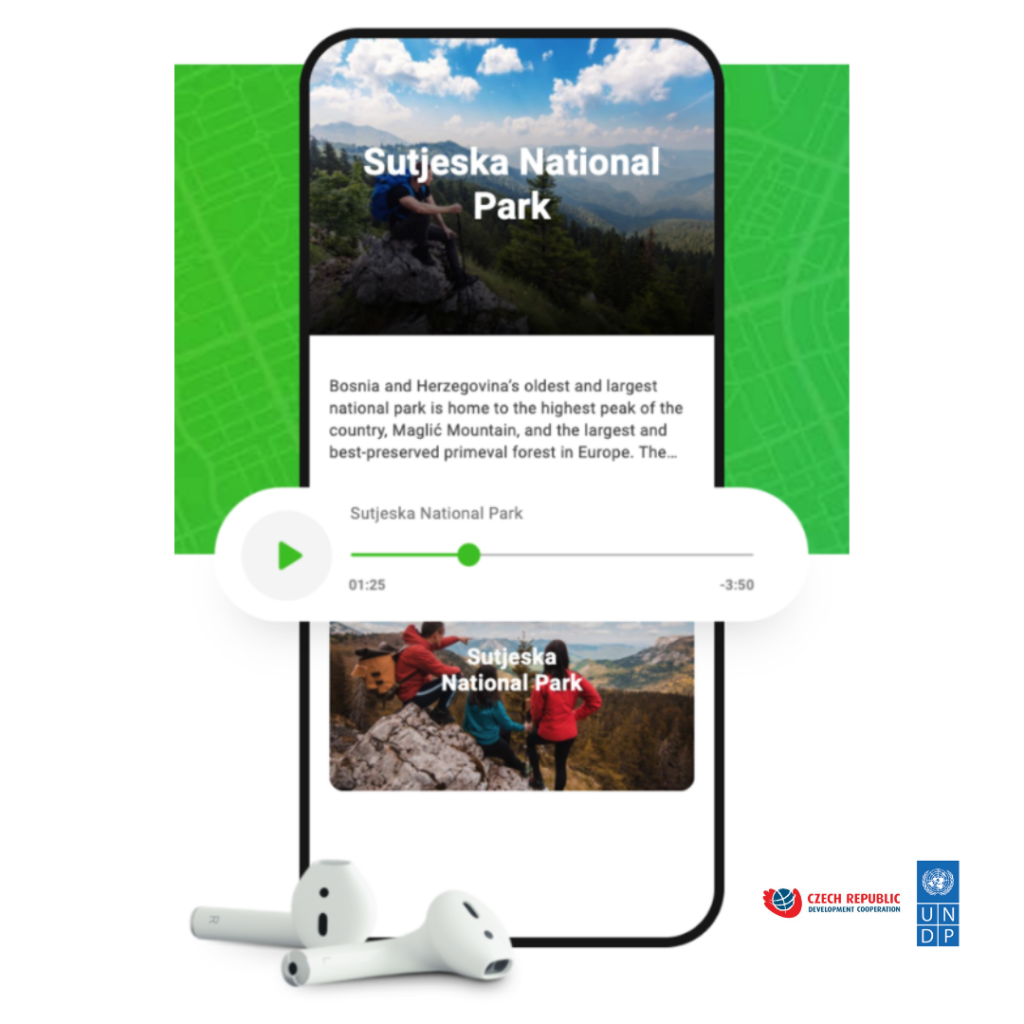
Smart Guide app
These were the projects in the European region and we are moving to Africa. The first country is Ethiopia, where long-term priorities are climate resilience, environmental sustainability and economic transformation with a focus on strengthening the innovation ecosystem and technology. Ethiopia has been dealing with the problem of technology transfer for a long time, although technology transfer offices have been established there, but effective links between academic institutions and industry have not been created. The Czech company UNICO.AI will address this challenge through its EXPERTS.AI platform, which collects information about university activities, which will then be presented on university websites and towards the private sector in a structured way. The result will be a better and more efficient transfer of technology between the private and public sectors. A second challenge for Ethiopia is improving road safety, because many people die in accidents every year. The key to improvement is a strong governance in all aspects of road safety. The Czech company InnoConnect will therefore implement a project that will develop an analytical map of traffic safety and create dashboards focused on the interactive analysis of traffic accidents. The solution will enable an in-depth analysis to identify high-risk locations and gain in-depth knowledge of the factors that increase the risk of severe accidents. The last project that will be implemented in Ethiopia is the construction of a community skate center. The Czech non-governmental organization Skate World Better will try to solve the problem of insufficient leisure activities for the predominant young population, especially girls. Skateboarding is a sport where differences in age, social status or ethnicity are erased. The aim of the project is to provide young women with a safe environment where they can meet, spend their free time and also educate themselves in other activities within the framework of seminars, theaters and workshops.
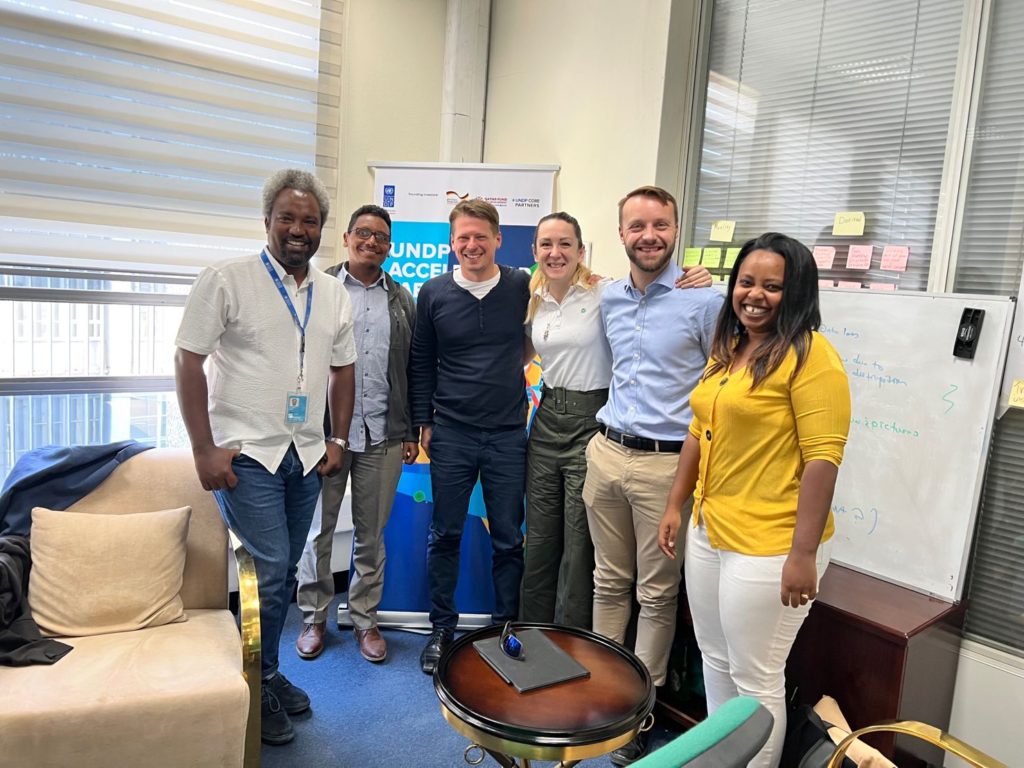
UNICO.ai in Ethiopia 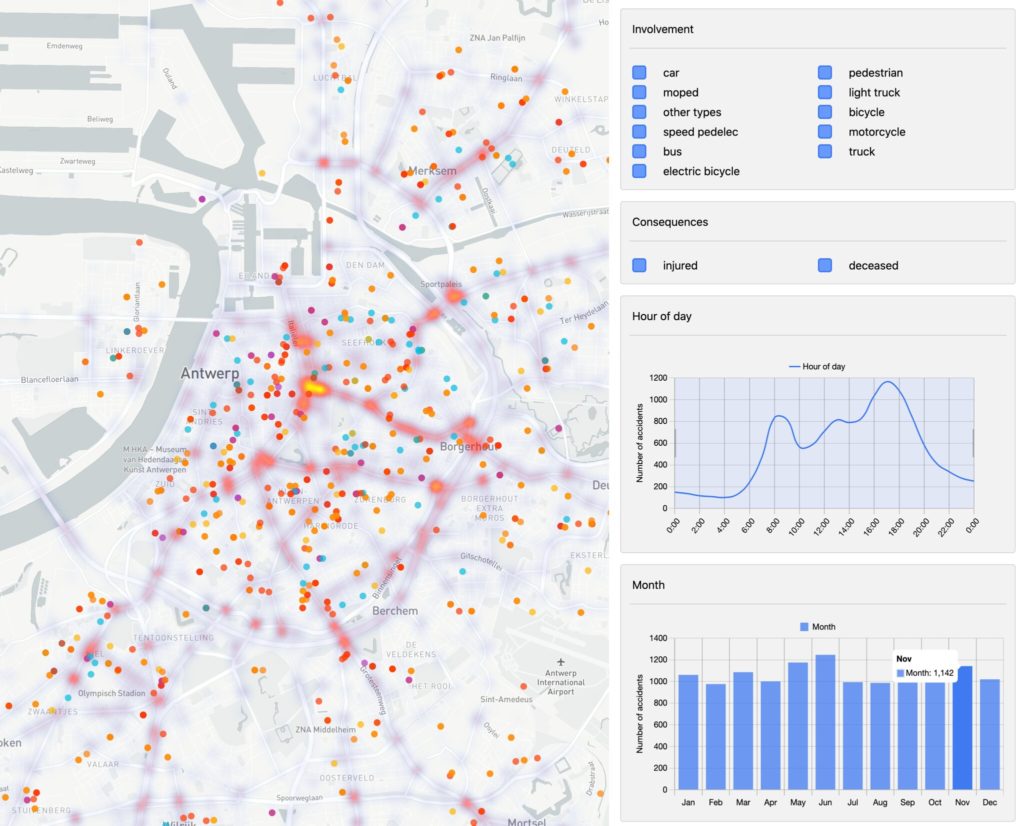
InnoConnect heat map 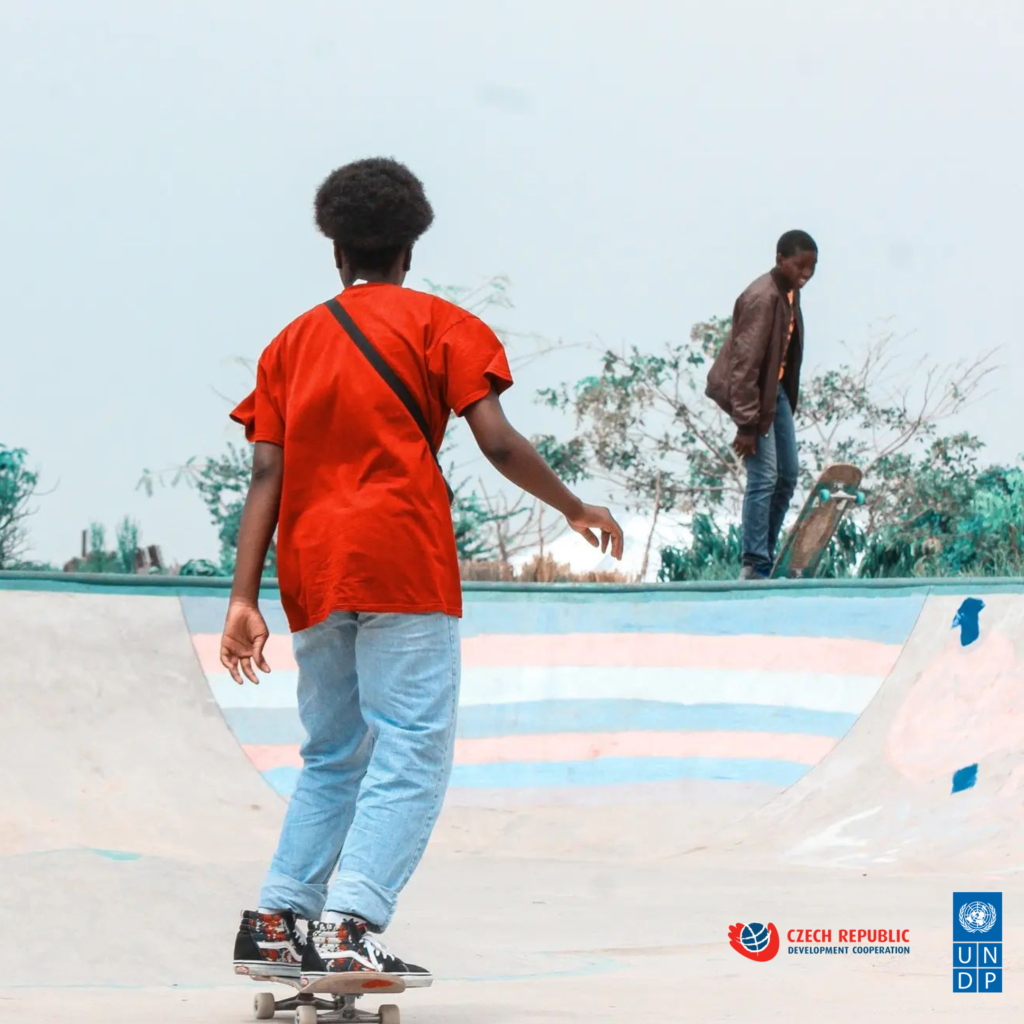
Skate Center by Skate World Better
Another country in Africa where two projects will be implemented this year is Zambia. Here, the priorities are good governance aimed at supporting young people, the development of local businesses, renewable energy and resilience to climate change. The first area where the project will be implemented is the Kashitu area, a rural area in the central province with limited access to building materials. The Czech Technical University in Prague will try to solve this problem by introducing a manual brick press together with improved brick production technology. This construction technology improves traditional brick production. High-quality bricks are produced with interlocking elements shaped like building blocks and the method is cheap and easy to learn at local level. Second project will be implemented by another university, the University of Chemistry and Technology in Prague, which aims to reduce the use of coal in the country and switch to biogas. The main activity of this project will be the establishment of pig breeding as a guaranteed source of raw material for the production of biogas. Czech experts will train young people in biogas production, biogas-based electricity production, efficient pig production procedures, slaughterhouse management and small-scale meat processing.
The last priority country of the Challenge Fund is Cambodia. The priorities here are sustainable growth with a focus on climate resilience, renewable energy and sustainable agriculture. Cambodia is one of the world’s most important mango producers. The processing of mango creates processable waste – mango stone, which has not yet been used. Mendel University in Brno will try to solve this problem thanks to the know-how related to the processing of fruit stones into valuable fats and fuel pellets. The proposed solution is the development of a feasibility study that will analyze the current production of waste in the form of mango stones, propose local options for their treatment and pilot oil extraction and pellet production.
About the Czech-UNDP Partnership for SDGs
The partnership of the Czech Republic and UNDP supports innovative solutions from the private sector of the Czech Republic, non-governmental organizations, universities, state institutions, research centers and individuals for solving specific development challenges in priority countries (Bosnia and Herzegovina, Georgia, Moldova, Ethiopia, Cambodia, Zambia). The implementation of projects and expertise is financially supported by the Ministry of Foreign Affairs of the Czech Republic.

